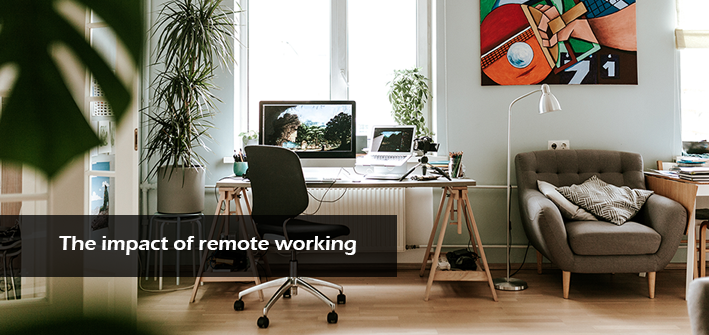The impact of remote working on human and organisation

For criminal syndicates the global move towards remote work is absolute bliss, which can’t always be said for employees. While we strive to service our clients in a manner that is fair and in line with product expectations, the volumes of claims have made it increasingly difficult to institute the traditional fraud checks and controls, intensifying the need to be creative and mobile in our business processes. There has been a definite uptick in claims-related fraud over the last 12 months, and some of these cases are from the usual syndicates, while an increasing number originate from individuals under financial pressure and who are desperate for cash.
These fraudulent claims vary from one line of insurance to the next. In the life insurance industry, we have seen a dramatic increase in death claims, where syndicates have taken the opportunity to attempt to push through claims hidden in the volume of Covid deaths. In the non-life industry, we see a variety of vehicle-related fraud, such as staged accidents, double dipping, and even false theft or hijacking reports. Also common is the attempt to report the loss or theft of electronics, which would be claimed on a ‘fast track’ basis, resulting in expedited claim payments.
On the positive side, we have seen many interesting innovations in insurance offerings, which is great for the consumer in terms of cost and extended benefits. Success in this journey will depend on continuing innovative products and systems, as well as efficient, communicative, motivated people.
Stress and burnout
As work from home (WFH) and work from anywhere (WFA) has evolved, the newest development is “work anytime” (WAT), which allows us to work outside of traditional hours, affording employees the opportunity to be more flexible, and catering for changing family responsibilities. One of the spinoffs of WAT is that people are physically active, whether it be work or personal activities, many more hours than they are used to, and are experiencing stress and burnout more so now than in the past.
Complicating the situation is that the ability to interpret how a colleague feels has been severely impacted, as we are no longer seeing the more obvious facial expressions or body language. These little nuances, normally taken for granted, form an extremely important part of human interactions and connections.
Increased personal pressure whether due to death, loss of income, retrenchment, or just frustration from being in the same work \ home environment is high. Numerous people I have spoken to have commented that they are finding work and life separation more complicated. They are also finding it increasingly difficult to switch off and that previous chill zones at home have been ruined, as they are now being used as workspaces.
We know that companies are run by people and as fast as we can adjust and implement new operational systems with great IT solutions, it is more complex to ensure that the people using, implementing, and monitoring those systems are in turn correctly motivated, retrained and monitored.
Attitude and company culture are important components of corporate governance and compliance, and with the decrease in physical contact and communications these embedded concepts can slowly erode.
Syndicates quickly realise that controls previously in place are stretched and even broken in some cases. They look to pounce on these opportunities. More time is being spent on digital mediums than ever before; digital contacts have increased dramatically, which has, in turn, led to a significant increase in cybercrime events, identify theft, and spoofing.
The way in which we implemented processes or controls in the past have now been physically stretched, as we are no longer as diligent in enforcing typical governance models. Conventional cybersecurity, fraud flags and typical separation of duty controls have been impacted, becoming increasingly challenging to monitor. Employees are more easily tempted to cut corners, feeling that while they are sitting in the privacy of their home environment nobody is watching, which could tempt them to be creative in all the wrong ways.
Considering the future reality of WFH, WFA and now WAT, the real race is to ensure that alongside improved product offerings, operational systems and governance controls we should also aim to improve work-life balance for our human resources, with the prioritisation of mental health programmes ultimately designed to protect our most important assets.
Source: FIA